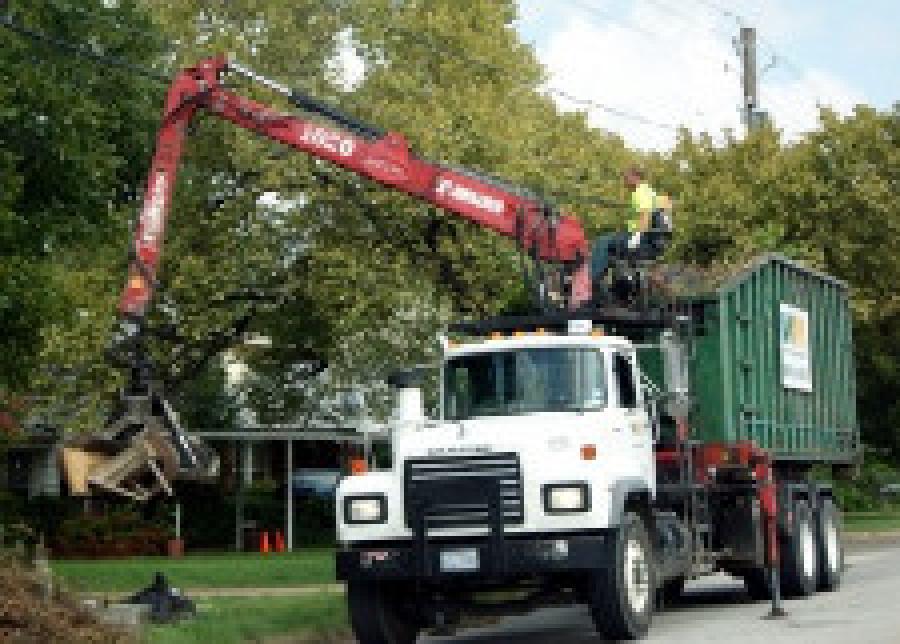“Calling” for Meaning in Our Work
Image

By Dr. Jim Thrasher and The Center for Vision & Values at Grove City College (Grove City, PA). Used by permission.
The first job I ever wanted was to be a “garbage man,” as that is what I called it at age five. I would run out to the curb each week when the garbage truck came. The garbage man would greet me with a big smile and say, “How are you, Jimmy?” It was exceedingly apparent that this man had a positive attitude while performing what most would call a smelly, repetitive, and mundane job. I sincerely believe that this man—who impacted my life and whom I will never forget—loved his job because he saw beyond the required tasks and faithfully served and cared for others. For him, it had little to do with the job itself. I wanted to be just like him because, as I look back now, I sensed his service, commitment, devotion and calling.
Calling? Yes, calling. Isn’t that just an outdated theological concept? Well, no. Calling applies to everyone. Calling is a heartfelt perspective that you are to be a faithful steward of your time, abilities, and employment opportunity to serve the Creator and your fellowman. The most potent and under-utilized way to enhance productivity, engagement, performance, and even personal health is having a calling perspective of work. This perspective produces a rare breed of people who contribute to others and who are workplace transformers. Calling will bring meaning and fulfillment to any job or career. If you make the choice to view calling as service and commitment, contributing by making a difference in the lives of others, the impact will be immense.
First, you will have a tangible positive impact in the lives of co-workers, clients, patrons, patients, and even strangers. With this perspective of service, your thoughts, inclinations, feelings, and approach to your job will be transforming influences in the lives of others. A self-sacrificing mantra will provide deep and abiding joy wherever you find yourself. This challenges entrenched mindsets. But seeing work as a calling is a decision, a choice to serve and invest, even if you currently find yourself in a less-than-enthralling career.
Research shows that the personal benefits of this perspective are truly phenomenal. Amy Wrzesniewski, a professor at Yale University, itemized a profound and comprehensive list of the many work and personal (physical and psychological) tangible blessings experienced by people who possess a calling perspective in her articles “It’s Not Just A Job” and “Career as a Calling.”
Do you want to embrace a calling perspective of your work? Read on for these benefits, which become evident at work and in one’s personal life. I think your response will be “Absolutely!”
At work, those with a calling perspective have a commitment to their coworkers beyond their job requirements. They are committed, service-oriented team players. People who view their work as a calling do not long for the evenings and weekends, but thrive during the workday. These employees rise to higher levels of accomplishment within their employment settings. They place value on their work, are very engaged, and make a conscious decision to enjoy their work.
In one’s personal life, calling produces desirable and life-changing benefits. A calling perspective produces better psychological and physical health. Individuals with this perspective have higher overall life fulfillment and a more positive outlook. Enthusiasm, passion, resiliency, and intrinsic motivation typify these calling pursuers. Their passion for the opportunity to serve produces a greater ability to handle even the most difficult aspects of their jobs.
Have you seen it? I witnessed it early in life, and I will never forget the garbage man’s energy, smile, sincerity, and caring approach. Do you want it and the real, practical benefits that calling can bring to your life, now? It is a decision to look beyond your employment challenges and circumstances, to choose to transform your life and workplace by adopting and applying a calling perspective. The job itself doesn’t produce it. It is a life-changing inner conviction to revolutionize one’s life and work environment through the call to invest, give, and serve.
Dr. Jim Thrasher is the director of Grove City College’s career services office and the coordinator of the Center for Vision & Values working group on calling.
- 36 views
I believe in vocation and agree with much of what Dr. Thrasher says here, but vocation and job do not necessarily align in such a way as to result in loving your job.
There are two levels of vocation to take into account: the calling to whatever work we have “as unto the Lord and not unto men” (Col. 3.23 I think)
The other is the calling to specific kinds of work. It’s this latter level that can often result in a loving your job situation because the work we’re called to is also work we are providentially gifted for, do well, and enjoy. But you can’t always find work that fits your vocation. What then? Well there’s no biblical mandate that says you can’t do what you love on the side as a service and make your living doing what is available as a source of income.
… because there is the calling to provide for those God has called us to provide for. A third level.
Blessedly, in almost all of the “jobs” I’ve had, there have been components that aligned with my “vocation” and so I loved that part of my job. I can’t say I exactly love what I’m doing now, but I do have the blessing of work that I enjoy more than 90% of the time, and that’s pretty rare, it seems. I am truly grateful for it.
Views expressed are always my own and not my employer's, my church's, my family's, my neighbors', or my pets'. The house plants have authorized me to speak for them, however, and they always agree with me.



Discussion